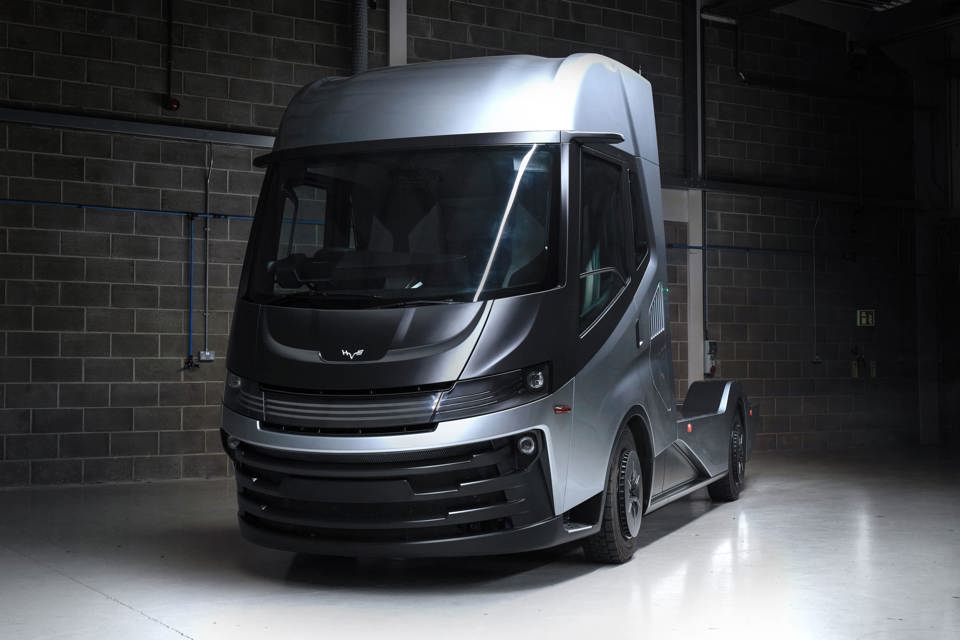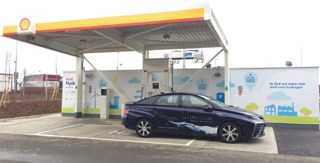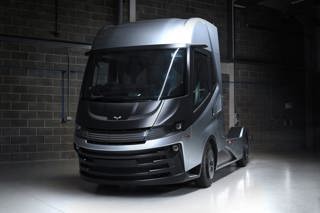Hydrogen Vehicle Systems (HVS) has been awarded £3.4 million of funding to develop an autonomous hydrogen-fuelled HGV.
The firm’s Hub2Hub consortium will create the tractor unit, which will begin vehicles trials in 2024, in partnership with UK retailer Asda.
The first hydrogen-electric HGV prototype will be fitted with a driver’s cab and tested on the road in autonomous operation, using the Fusion Processing’s Automated Drive System, CAVStar, with a human safety driver at the wheel.
A second prototype will have the driver’s cab removed and replaced by an aerodynamic fairing. During the project this vehicle will be evaluated on test tracks, with the CAVStar system in this application allowing a remote human driver, located in a control hub, to operate the vehicle.
Jawad Kursheed, HVS CEO, said: “A transport revolution is taking place in the UK and HVS, together with the consortium, is at the forefront of the innovation.
!We are engineering the world’s first autonomous hydrogen-electric powered HGV to demonstrate hub-to-hub logistics to a leading retailer, ASDA, to elevate public perception, showcasing the potential autonomy can deliver thanks to increased safety and fuel savings, and develop new business models.”
It’s hoped that the cost savings an autonomous lorry could provide will speed up the adoption of zero-emissions vehicles by the freight sector, reducing the industry’s contribution to climate change.
The £12 million venture has been selected by the Centre for Connected Autonomous Vehicles (CCAV) as a recipient for its joint industry and government-funded project with the aim of showcasing the potential of autonomy in the transportation sector.
HVS, which revealed its hydrogen-electric powertrain technology demonstrator in November 2022, will receive £3.4 million as one of seven grants being announced from the CCAV and Connected and Automated Mobility (CAM) programme.
ASDA senior fleet manager Sean Clifton said: “Reducing our fleet emissions is a major part of our plan of moving towards net zero, so we are keen to look at innovative new technology, such as autonomous HGV tractor units, which can make a real difference to our carbon footprint. We will continue to work with like-minded partners on projects such as this to reduce our impact on the environment.”





















Login to comment
Comments
No comments have been made yet.